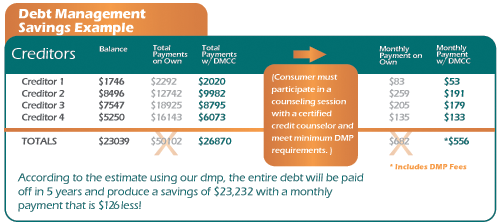Credit Consolidation Singapore: Simplify Your Debts with Specialist Aid
Credit Consolidation Singapore: Simplify Your Debts with Specialist Aid
Blog Article
The Comprehensive Overview to Producing an Effective Financial Debt Management Prepare For Conquering Financial Obstacles
Browsing financial difficulties necessitates a critical approach to financial debt monitoring, highlighted by a detailed understanding of one's financial landscape. By diligently examining revenue, costs, and outstanding financial debts, individuals can develop a clear foundation for their monetary goals.
Understanding Your Financial Situation
Many people discover themselves uncertain regarding their economic standing, which can complicate the debt administration process. A clear understanding of one's financial circumstance is important for effective financial obligation administration.
To begin, people ought to note all resources of earnings, consisting of incomes, side tasks, and easy income streams. Next, a comprehensive account of monthly expenditures must be recorded, classifying them into dealt with and variable expenses. This enables for an exact computation of non reusable revenue, which is essential in establishing just how much can be allocated towards financial debt repayment.
Additionally, people must assemble a list of all financial obligations, keeping in mind the amounts owed, rates of interest, and payment terms. This will give insight into which debts are much more pressing and might call for prioritization. Recognizing one's financial scenario not just help in reliable financial debt administration however also lays a solid structure for future financial planning. This step is pivotal in guaranteeing that people can navigate their economic challenges better and function in the direction of achieving lasting stability.
Establishing Clear Financial Goals
Establishing clear financial objectives is a vital following step after obtaining a comprehensive understanding of your financial circumstance. These objectives act as a roadmap, guiding your initiatives and choices as you work in the direction of achieving financial stability. Begin by recognizing both long-lasting and temporary purposes. Short-term goals could consist of repaying a particular financial debt or developing an emergency fund, while long-term objectives might entail conserving for retirement or buying a home.
Utilize the wise criteria-- Certain, Measurable, Possible, Appropriate, and Time-bound-- to guarantee your goals are well-defined. For example, as opposed to stating, "I intend to save more cash," define, "I will save $5,000 for an emergency fund within the following year." This clarity not only improves focus however also enables much better monitoring of your development.
Furthermore, prioritize your objectives according to their necessity and significance. This prioritization aids in directing your sources properly, ensuring that necessary goals are dealt with first. By establishing clear economic goals, you develop an organized approach to managing your financial obligations and browsing monetary obstacles, ultimately positioning yourself for a much more secure financial future.
Establishing a Budget Plan
Producing a budget strategy is vital for handling your funds efficiently and ensuring that you remain on track towards attaining your monetary objectives. A well-structured spending plan acts as a roadmap, assisting your spending and conserving decisions while assisting you determine locations for renovation.
To establish an effective budget strategy, begin by listing all incomes, consisting of wage, incentives, and any kind of side earnings. Next off, categorize your expenses right into taken care of and variable expenses. Fixed costs, such as rent or home loan payments, stay continuous, while variable costs, like grocery stores and home entertainment, can fluctuate.
As soon as you have a clear picture of your revenue and costs, allocate funds per group based upon your financial priorities. Make certain that your budget plan permits for savings and financial debt payment, and take into consideration using the 50/30/20 rule-- 50% for requirements, 30% for desires, and 20% for savings and debt.
Evaluation your spending plan monthly to adjust for any type of changes in income or expenditures, and track your investing to ensure adherence (debt management plan singapore). By dedicating to a regimented budgeting procedure, you can gain control over your finances and pursue financial stability

Exploring Financial Obligation Payment Methods
Financial debt payment approaches are essential for recovering economic stability and minimizing the burden of exceptional responsibilities. Various approaches can be utilized, each made to efficiently take on the one-of-a-kind circumstances of people facing financial obligation challenges.
One popular approach is the debt snowball approach, which prioritizes paying off the tiniest debts initially. This approach offers mental motivation as individuals experience quick victories, fostering a sense of accomplishment. On the other hand, the financial debt avalanche technique concentrates on repaying debts with the highest rate of interest prices first, eventually lowering the overall passion paid over time.
Another efficient approach is financial obligation loan consolidation, which entails combining several financial debts into a solitary lending with a lower rate of interest. This not just streamlines the payment process but can additionally decrease month-to-month payments. Additionally, discussing with financial institutions for much more positive terms, such as lowered rate of interest rates or extended settlement durations, can reduce economic pressure.
Keeping Financial Discipline
Successful financial obligation payment approaches hinge not just on the methods selected yet likewise on the technique worked out throughout the procedure. Keeping economic article self-control is necessary for ensuring that individuals comply with their financial debt monitoring strategies and achieve their monetary goals. This entails developing a structured spending plan that focuses on financial obligation payment while permitting needed living expenditures.
One reliable method to growing technique is to set clear, achievable objectives. People need to break down their general financial debt into smaller, manageable targets, which can help promote a sense of success as each goal is satisfied. Furthermore, frequently reviewing one's economic scenario and adjusting the spending plan as needed can reinforce commitment to the plan.

Eventually, maintaining economic self-control requires constant effort and mindfulness (debt management plan singapore). By focusing on debt settlement and embracing prudent investing behaviors, individuals can navigate their economic difficulties successfully and lead the means for an extra protected financial future
Final Thought
To conclude, developing a reliable financial debt management plan requires a comprehensive understanding of one's financial scenario, combined with the solution of clear, possible objectives. A structured spending plan, straightened with strategic financial debt payment techniques, is vital for navigating monetary difficulties. Additionally, preserving monetary self-control through routine assessments and the facility of a reserve ensures long-lasting security. By adhering to these concepts, people can substantially improve their ability to handle financial obligation and achieve monetary well-being.
Navigating financial obstacles demands a calculated technique to financial debt management, emphasized by a comprehensive understanding of one's monetary landscape. Comprehending one's economic situation not just help in reliable financial obligation management yet also lays a solid structure for future financial preparation.Developing clear economic goals is an essential following action after gaining a detailed understanding of your financial situation. By setting clear financial objectives, you produce an organized approach to managing your debts and navigating monetary obstacles, inevitably placing on your own advice for a more protected economic future.

Report this page